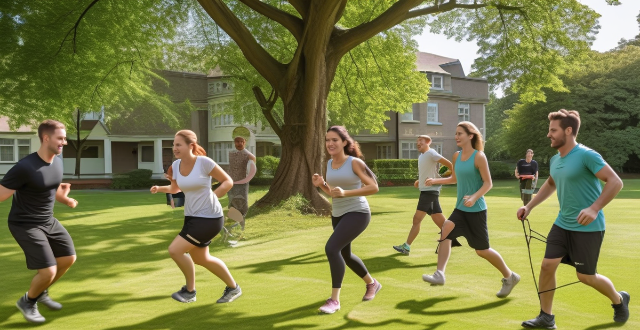Sports and physical activities can greatly improve the physical health of rural residents by enhancing fitness levels, managing weight, promoting mental well-being, encouraging social interactions, and preventing chronic diseases. It is crucial for local authorities and organizations to promote sports programs and provide accessible facilities to encourage more rural dwellers to engage in physical activities regularly.

How Can Sports Help Improve the Physical Health of Rural Residents?
Introduction
Sports and physical activities play a crucial role in maintaining and improving the overall health and well-being of individuals. For rural residents, engaging in sports can be particularly beneficial due to various reasons including lifestyle, environment, and accessibility to resources. Here, we explore how sports can contribute to the physical health enhancement of those living in rural areas.
Physical Fitness Enhancement
- Muscle Strength and Endurance: Engaging in sports that require physical exertion helps build muscle strength and endurance over time. This is especially important for rural residents who often engage in labor-intensive tasks related to agriculture or other manual jobs.
- Cardiovascular Health: Sports activities such as running, swimming, or cycling improve cardiovascular health by strengthening the heart and enhancing blood circulation. This can reduce the risk of heart diseases and stroke.
- Flexibility and Coordination: Sports like gymnastics, dancing, or martial arts improve flexibility, balance, and coordination, which are essential for daily activities and can prevent falls and injuries.
Weight Management
- Control Over Weight Gain: Regular participation in sports can help regulate body weight by burning calories and reducing the risk of obesity. Obesity is linked to numerous health issues including diabetes, heart disease, and certain types of cancer.
Mental Health Benefits
- Stress Reduction: Engaging in sports can act as a stress reliever by producing endorphins, known as "feel-good" hormones, which can improve mood and reduce stress levels.
- Improved Sleep: Regular physical activity can lead to better sleep patterns, which is vital for overall health and energy levels during the day.
Social Interaction
- Community Building: Sports can foster a sense of community among rural residents by providing opportunities for social interaction and teamwork. This social support network can have positive effects on mental health and motivation to stay active.
Prevention of Chronic Diseases
- Reduced Risk of Chronic Diseases: Regular physical activity through sports can help prevent chronic diseases such as type 2 diabetes, heart disease, and certain types of cancer by maintaining a healthy weight, improving cardiovascular health, and regulating blood sugar levels.
Conclusion
Incorporating sports into the lifestyle of rural residents can significantly improve their physical health by enhancing fitness levels, managing weight, promoting mental well-being, encouraging social interactions, and preventing chronic diseases. It's essential for local authorities and organizations to promote sports programs and provide accessible facilities to encourage more rural dwellers to engage in physical activities regularly.